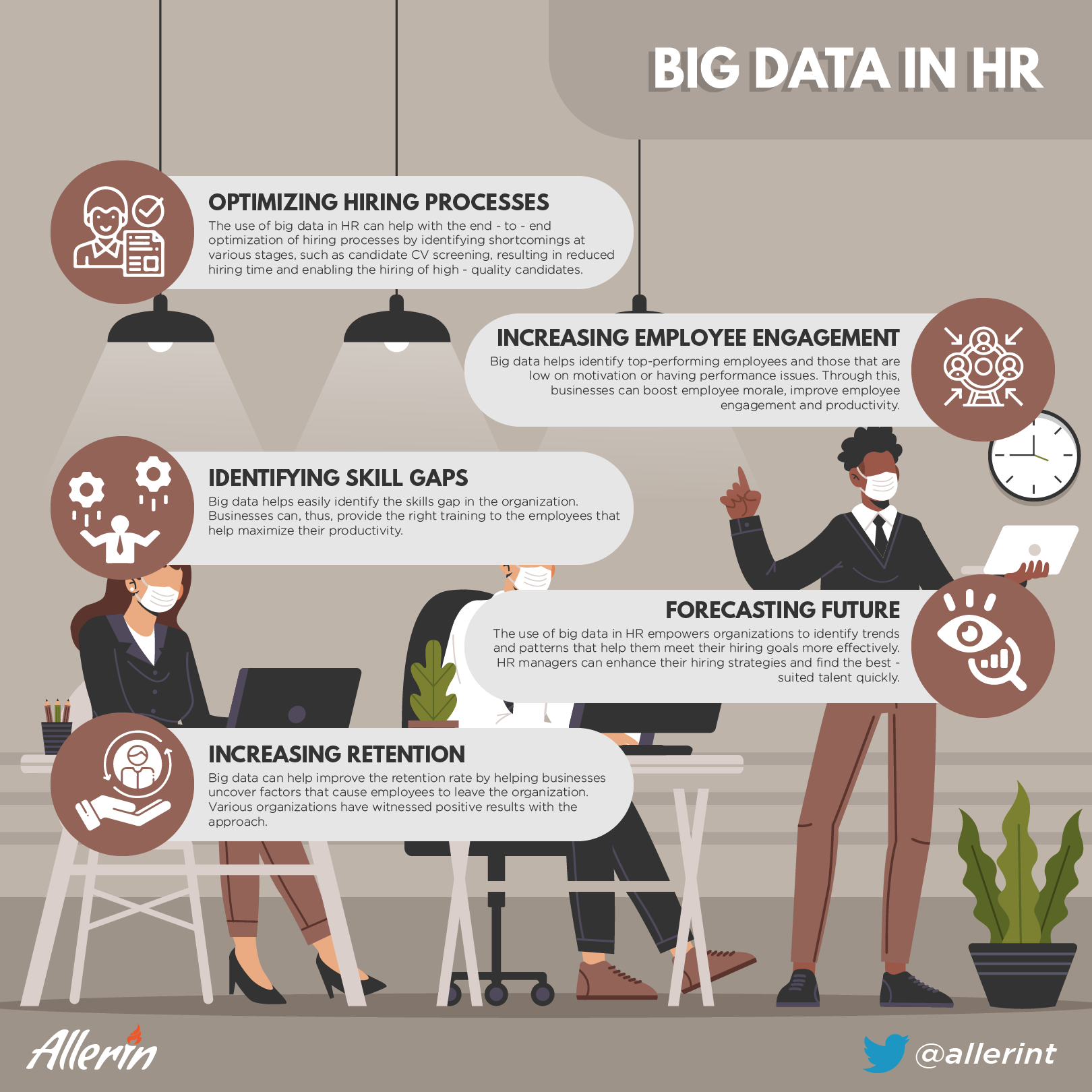The use of big data in HR enables organizations to find patterns and trends that can help hire high-quality candidates and make better predictions.
We all are cognizant that big data has proved to be a game-changer in every business department. Undoubtedly, one of the most impactful use cases of big data in business processes lies in the HR department.
Implementing big data in HR helps uncover deeper insights that can lead to the improvement of various areas of HR, including recruitment, training, evaluation and compensation. Thus, businesses can meet their hiring goals more efficiently. Here’s how the use of big data in HR can help transform it.
OPTIMIZING HIRING PROCESSES
 The recruiting process is lengthy, tedious and time-consuming. Moreover, organizations don’t find the right candidates even after strict vetting. The use of big data in HR can help with the end-to-end optimization of hiring processes.
The recruiting process is lengthy, tedious and time-consuming. Moreover, organizations don’t find the right candidates even after strict vetting. The use of big data in HR can help with the end-to-end optimization of hiring processes.
It can help identify shortcomings at various stages, such as candidate CV screening, resulting in reduced hiring time and enabling the hiring of high-quality candidates.
INCREASING EMPLOYEE ENGAGEMENT
Employee engagement is essential, especially in times of remote working. Big data helps identify and reward the top-performing employees. This helps improve employee engagement and productivity.
Similarly, big data can also help identify employees that are low on motivation or having performance issues. Businesses can take the necessary steps to solve these issues. This can boost employee morale, improve employee engagement and enhance employee productivity.
IDENTIFYING SKILL GAPS
A massive eighty-seven percent of companies say that they have a skills gap. Big data helps easily identify the skills gap in the organization. Businesses can, thus, provide the right training to the employees that help maximize their productivity. It also ensures that employees are working in the right roles that can further help maximize employee output.
INCREASING RETENTION
One of the biggest issues faced by organizations is low employee retention. Big data can help improve the retention rate by helping businesses uncover factors that cause employees to leave the organization.
For example, big data analytics can help identify that one of the reasons that employees leave the organization is because they are paid comparatively low salaries than other organizations. Thus, businesses can keep upgrading employee salaries periodically coherent with industry standards.
Various organizations around the world are already using big data to improve employee retention. They have witnessed positive results with the approach.
FORECASTING THE FUTURE
The use of big data in HR empowers organizations to identify trends and patterns that help them meet their hiring goals more effectively. HR managers can enhance their hiring strategies and find the best-suited talent quickly.
For example, the demand for employees may change during different times of the year. Big data helps find out how many employees are needed and when. HR managers can, thus, plan their hiring accordingly.
Many businesses are already leveraging big data in HR to optimize their recruitment processes. It has helped them streamline their hiring processes and hire high-quality candidates. Moreover, it helps them identify future trends and reduce attrition rates.























